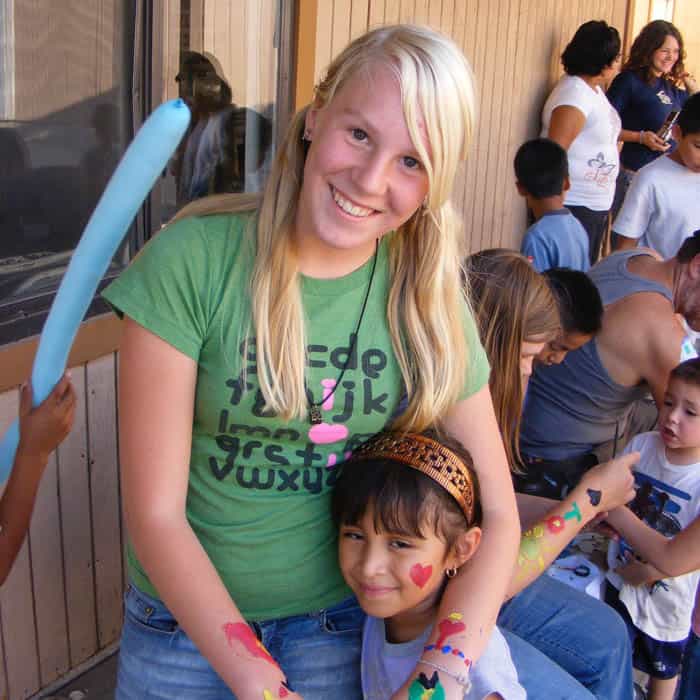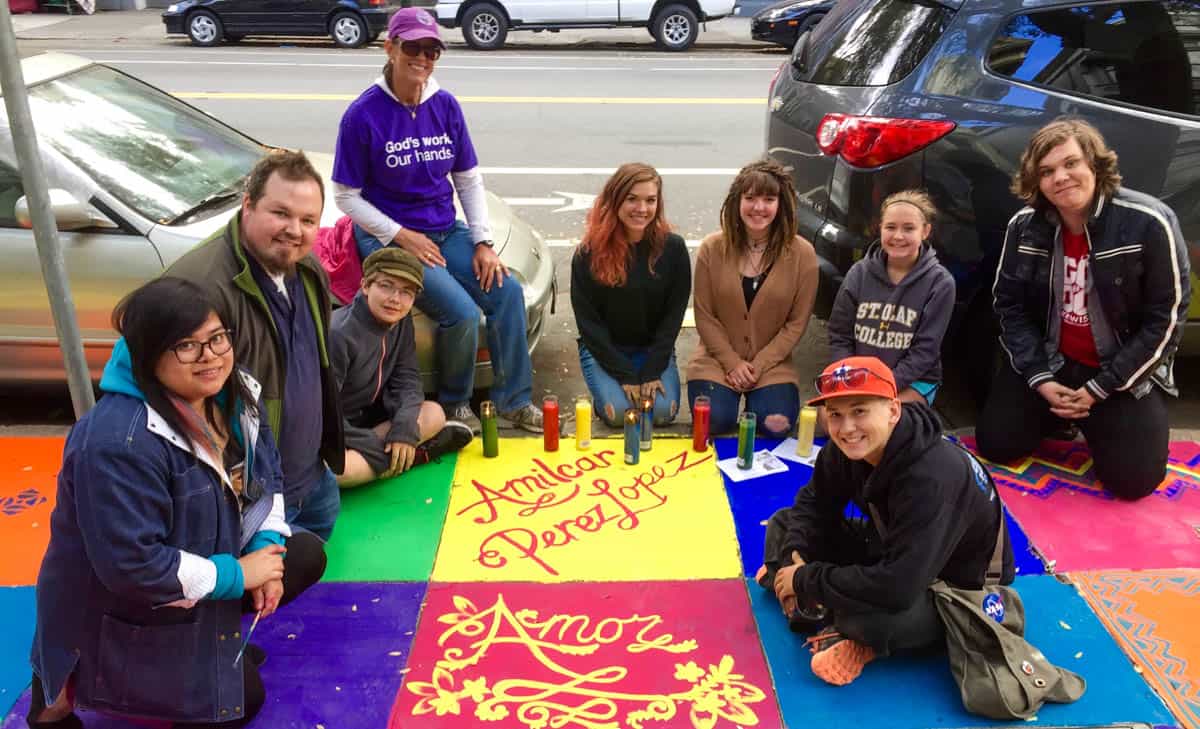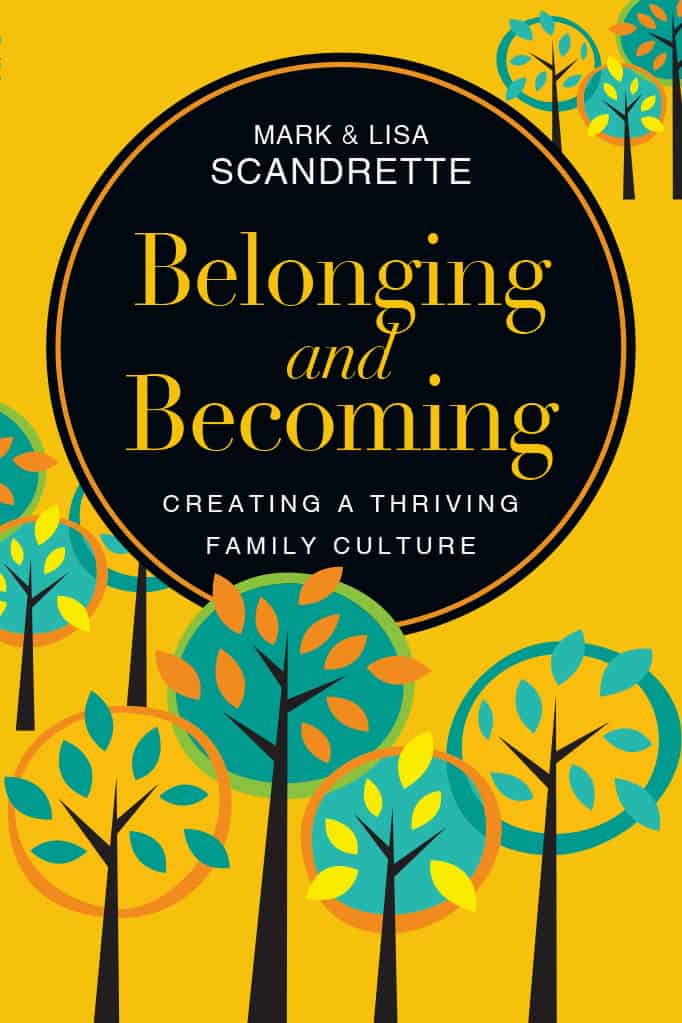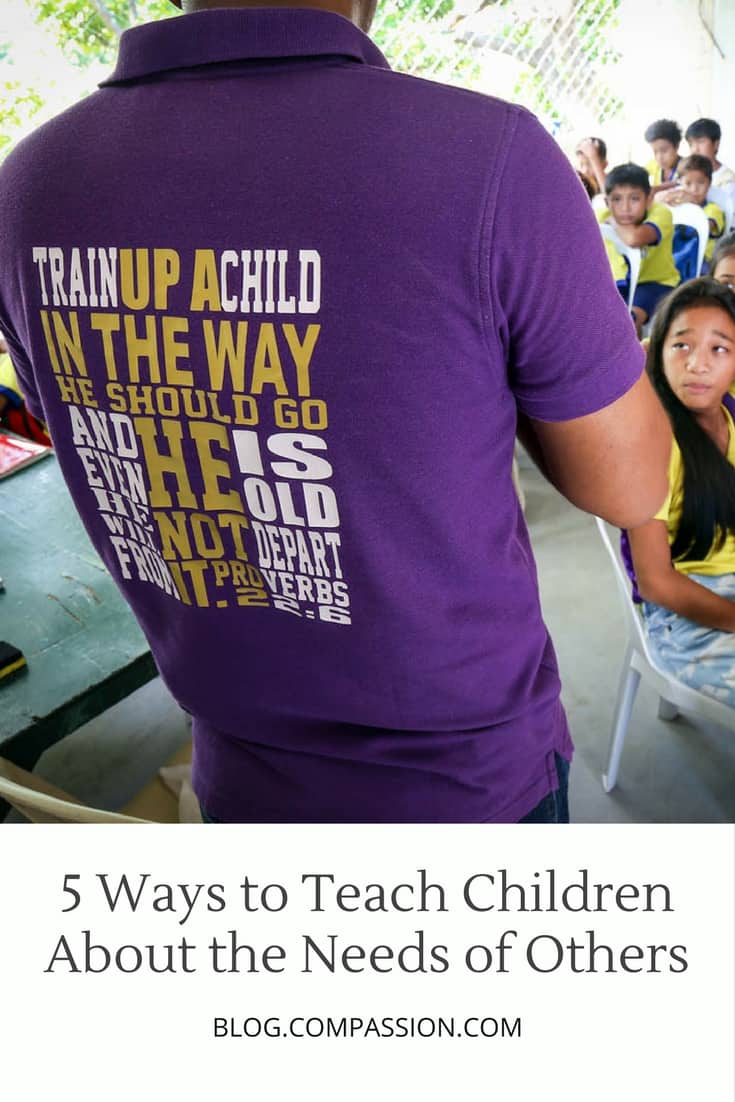When our daughter Hailey was five she asked, “Are we rich or poor?” At the time, we actually had little in comparison with what’s often expected in our culture.
But we also knew that how we answered her question would leave a lasting impression on her sense of abundance.
“Hailey,” my wife said, “We have everything we need. We have people who love and care for us. We have good food to eat, good things to learn, and fun places to go. Yes, we are very rich.”

Appreciating the abundance we’ve been given can help us and our children gain a perspective that empowers us to live generously.
Here are a few steps parents can take to help their kids develop a sense of abundance and generosity.
1. Cultivate gratitude as a family.
Despite our best intentions, meal-time prayers can easily become an uninspired repetition of well-rehearsed words.To mix things up a bit, when our kids were small we started inviting each person at the table to answer the question,
“What is one thing you are grateful for today?”
Every few months we also do a round of “affirmations” and have everyone share one thing they appreciate about each person in our family.
2. Teach your kids about money.
When I was four years old, my parents started giving me an allowance of 30 cents a week. Along with my three, dimes they gave me some simple guidance about money that my young mind could grasp: 10 cents to give, 10 cents to save, and 10 cents to spend. I put one dime in the plate at Sunday school, another dime in my penny bank at home, and I spent my third dime on bubbles, a rubber ball or some candy at the corner store.
We’ve done something similar with our three children.
We started giving them a small part of the family budget to manage when they were six or seven years old (their allowance, clothing money, gift money and a portion of our charitable giving), so that they would begin to understand how to value and plan their resources.
Now that they have after-school jobs and baby-sitting money, they share the cost of sponsoring a child (whom Hailey and I met on a trip to El Salvador in 2008).
Although we want to be generous with our kids, we have them save up and pay a portion of major purchases like camp, cameras and computers. As they hit adolescence we began having regular conversations about things like ethical spending practices, debt, and wise use of resources.
When we have to say “no” to a purchase, we take time to explain the decision and the trade-offs we sometimes have to make between spending and other life priorities.

3. Be a friend to the poor.
When our kids were small, we were taking early steps to practice compassion towards those who struggle with loneliness, poverty and mental illness. We wanted our kids to share this journey, so we took them along to the soup kitchen or homeless encampment. When we had the opportunity, we also spent time with children living in an orphanage in Mexico.
I love it that, once on the way home from the food pantry, our son Noah told me,
“Dad, I don’t think we should call our friends who live outside “homeless.” They have a home; it’s just on the sidewalk.”
He was learning important lessons about seeing each person with the dignity they have as beloved children of God.
4. Value the good things that everyone on Earth can enjoy.
When we expose our kids to poverty and struggle it’s easy to focus on the differences between what we have and what others lack. Sometimes our first reaction is to feel pity. But those with less have a lot to teach us about what is truly important and valuable.
As First World visitors to the majority world, we are often shocked by the absence of the luxuries and conveniences we are familiar with, as well as the lack of infrastructure, clean water, public safety, basic nutrition and health care.
Yet most of us are equally surprised by how generous and happy so many people living in these conditions are — smiling, laughing, singing, dancing and sharing what little they have with one another. I’ve heard many people confess that people living in these difficult situations often seem happier than we are.
While being careful not to romanticize or trivialize the challenges of living in the developing world, it seems clear that human happiness is not wholly dependent on what we own or consume. Exchanging regular letters with the children we sponsor as a family and hearing them share about their hopes and dreams reminds me to value the good things that everyone on earth can enjoy.
I think we receive as much, or more, from these children as we give to them.
5. Choose a lifestyle that is more globally sustainable.
As a family, we’ve become aware of estimates that it would take four to seven Earths to sustain us if everyone on the planet had the same ecological footprint as the average American. This has given us a lot to wrestle with and talk about.
Just because we can afford to consume more, does that mean we should? We know of families who have sold their children into labor or sex slavery so that they could buy a TV or video game system.
What are we modeling for our brothers and sisters in the developing world? For the sake of our global neighbors, the planet and future generations, we’ve simply got to find a less wasteful and consumptive vision of the good life that can be shared by all.
These are not concerns with easy solutions, but the gospel invites us to use our creativity and intelligence to pray and seek God’s will to be done on Earth as in heaven.

This is why I regularly explore two questions with my kids:
“Who are you, and how has God made you to be of use in the world?”
We try to help our kids see how their interests in science, literature and musical theater can be used to bring healing and hope.
We can be generous with our money, but even more, we can instill in our kids a sense of destiny, to be generous with their whole lives.
How do you cultivate a sense of generosity and teach your children about the needs of others? Leave a comment below!
ABOUT THE AUTHOR: Mark Scandrette’s new book Belonging and Becoming: Creating A Thriving Family Culture explores these themes and more. In the book, he and his wife Lisa offer wisdom from the joys and struggles of their own life, and practical guidance for creating a healthy and deeply rooted family culture, where each person is supported to develop who they are for the good of the world.

This blog was originally published on October 13, 2013








9 Comments |Add a comment
My 8 year old granddaughter Khloe inspired me to be more open-minded to those whose home is under a bridge or on the sidewalk. She says to not worry about how they may spend the money you give them, just help them, she is usually the first to give them a portion of what ever money she has in her pocket, it reminded me its Gods battle not mine, to judge.
Thank you, Mark. I think this article could also be called, “5 Ways to Teach Children About Happiness.” Or five ways to teach anyone, everyone, and ourselves about happiness and living a fulfilling and meaningful life. If we all followed these five principles in our own lives, regardless of parental status, just think of the radical, positive changes we would see throughout the world. Mark, I already believed in and lived these principles, but your article has inspired me to recommit to them. I’ve written them down and will post them where I can be reminded of them on a daily basis. I also plan to check out your books.
Thank you!
Absolutely encouraging!! Thank you!!
Excellent article! As a new foster parent of two siblings (11yr old girl & 13 yr old boy)-with no birth children of our own; it’s been a struggle finding inspirational articles and information on this type of subject. I feel it is incredibly important to plant the seeds of mindfulness and gratitude for all of our countless blessings; understanding that something good almost always comes from a “bad” situation or circumstance. We are all part of one human family and global community with many more similarities than most people realize. Thanks for your inspirational article. 🙂
Excellent advice, thank you! I agree that we can teach by living the kind of life example that our children would want to emulate: Kindness and empathy for the less fortunate, sustainable lifestyle, gratitude. I like the idea of teaching the kids about money at an early age, makes them responsible and good stewards when they grow up.
If those with less are able to rejoice and be grateful, then how much more those with abundance!
What is hindering such joy and gratitude in the hearts of many in the developed world is the very blessings they have been blessed with.
Do they not idolize the blessings instead of giving thanks to the Giver of such blessings?
Ungratefulness is the root of spiritual poverty and makes man poor indeed.
Sound advice, Mark!
Hey Susan! We’d love to send you a copy of Mark’s new book if you’re interested. We’ll DM you.
Excellent!